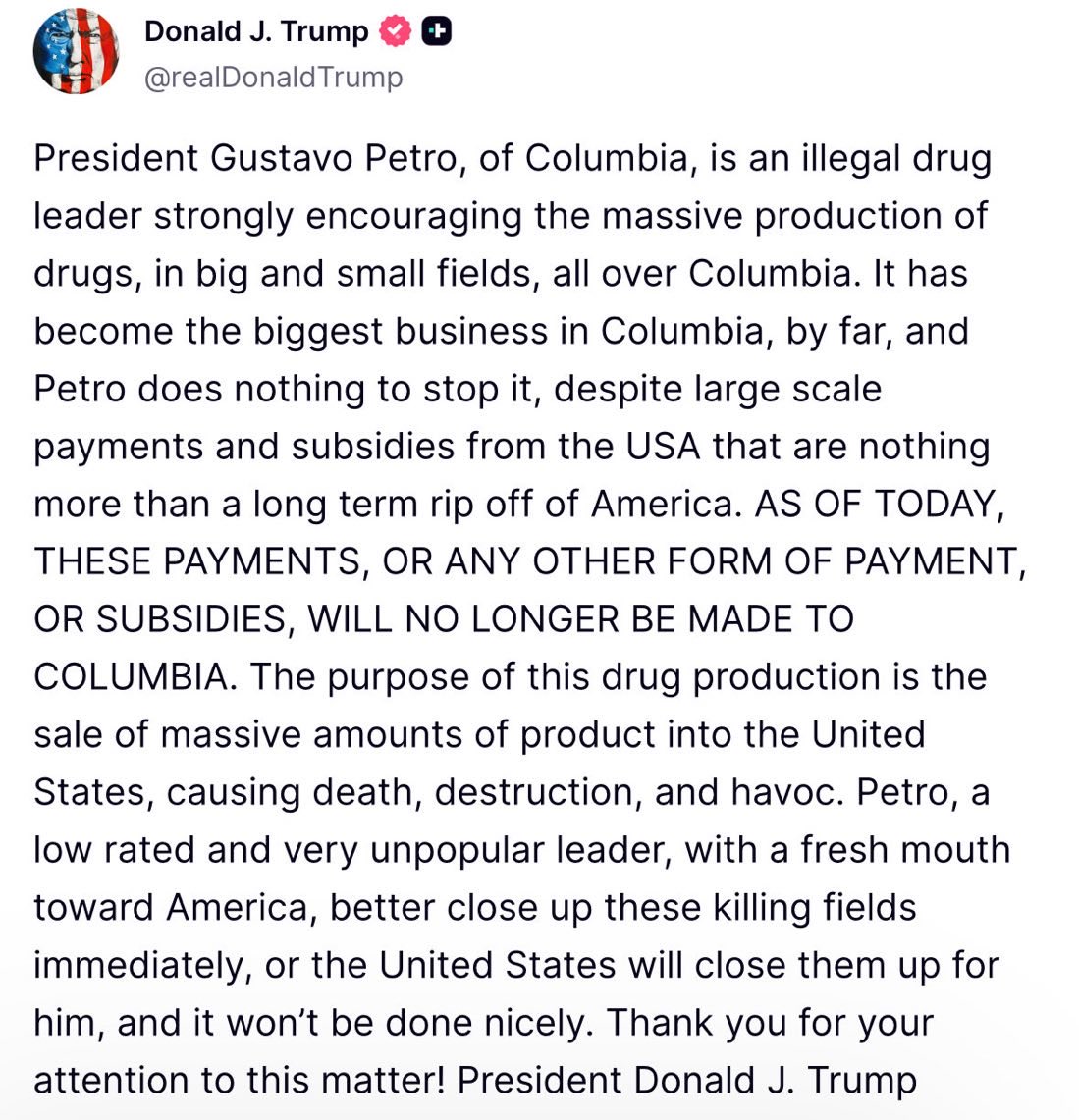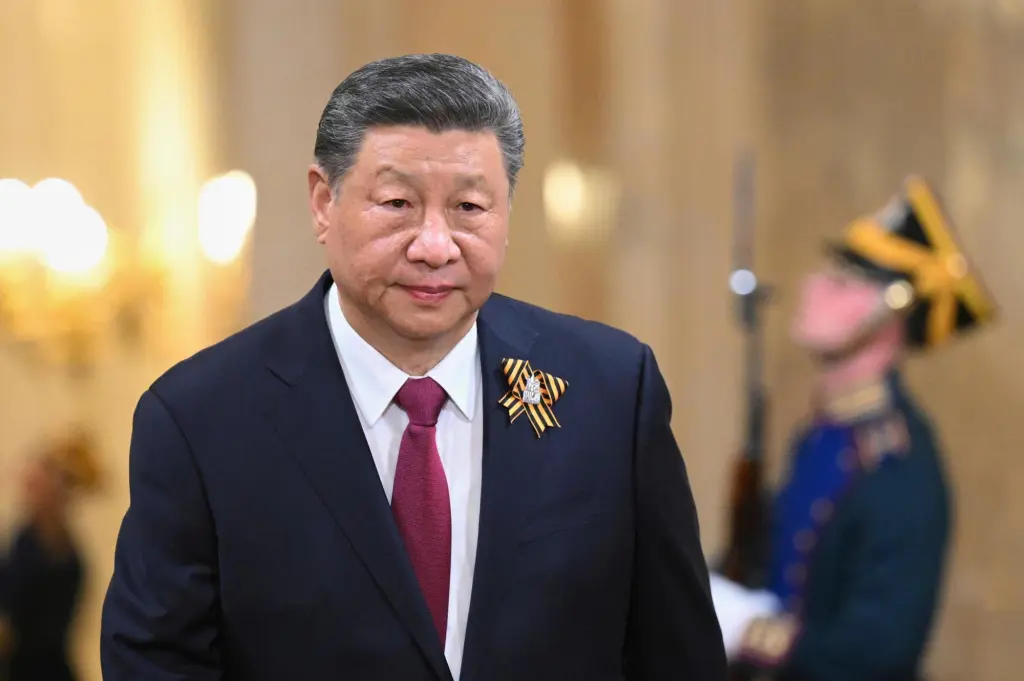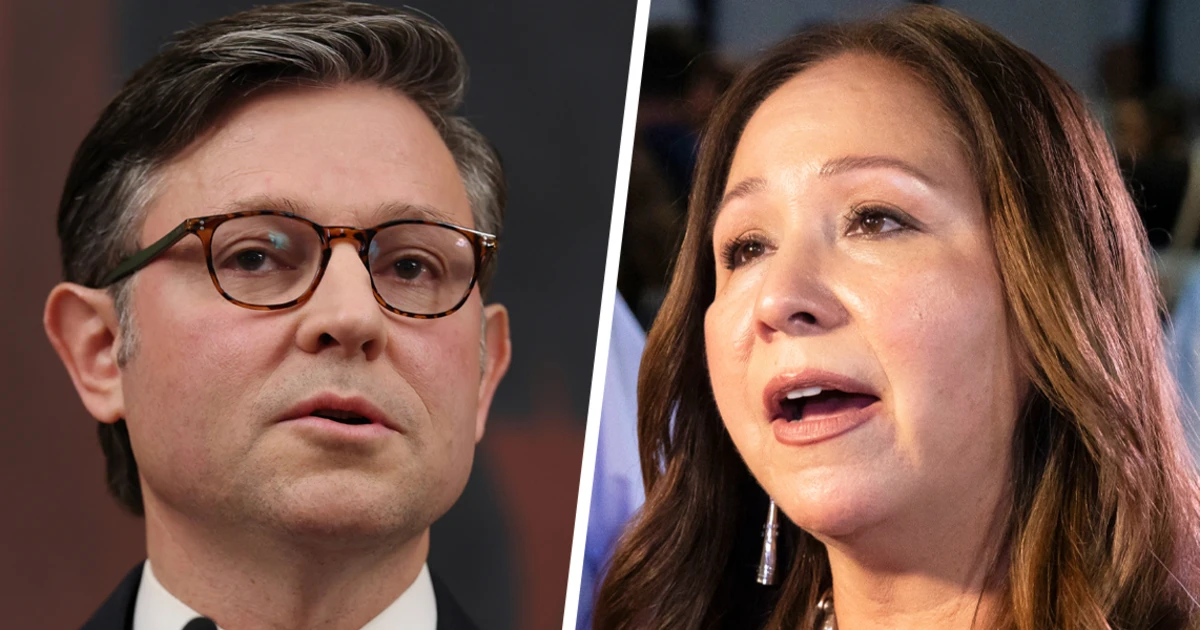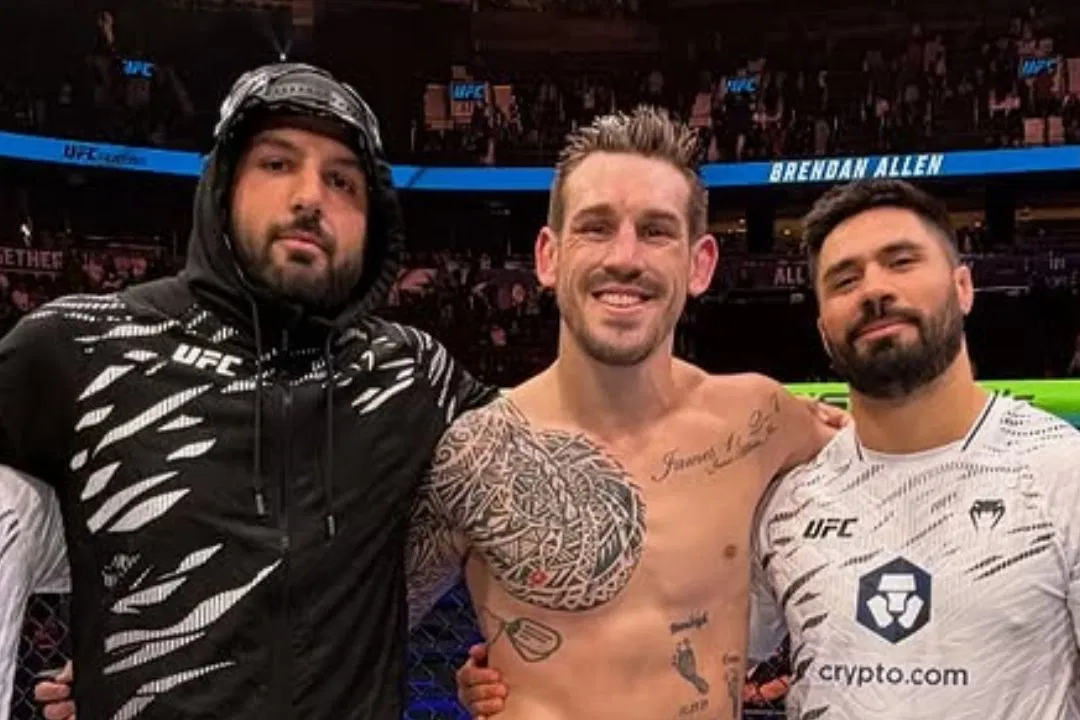Copyright Naked Capitalism

CNN has even published an article highlighting the “dark history of the CIA and regime change”, not just in Latin America but around the world. Almost exactly two months ago, we posted a piece on the real motivations behind Washington’s latest show of force against Venezuela. As we noted at the beginning of that post, the ostensible casus belli of the mobilisation of forces — to take down drug trafficking organisations in Latin America, now classified by the White House as narco-terroristas — didn’t remotely pass the smell test: Anyone who believes or supports this latest pretext for war against a country the US has tried to regime change at least twice so far this century and which has been subject to more than a decade of crippling US sanctions is either exceptionally gullible or an apologist for empire. Now, two months later, the US and Western media, after helping manufacture consent for the massive build up of forces in the Caribbean and the US’ extrajudicial attacks on the high seas, which have now claimed seven vessels and an estimated 30 people, are finally admitting what was glaringly obvious from the very start: Trump’s mobilisation of forces against Venezuela has nothing to do with the war on drugs, and everything to do with regime change. The New York Times was one of the first movers, conceding in an October 9 article that the “flow of drugs to the US would not be stopped by attacking Venezuelan vessels”: Mr. Trump’s focus on Venezuela is at odds with reality: The vast majority of cocaine is produced and smuggled elsewhere in Latin America, according to data from the United States, Colombia and the United Nations. And Venezuela does not supply fentanyl at all, experts say. The Trump administration has pressed Mexico’s government to do more to stop drugs from entering U.S. territory, but former diplomats and regional analysts say that — American claims notwithstanding — the boat strikes off Venezuela appear to have a different aim. Some suggest that they may instead be intended to put pressure on Venezuela’s president, Nicolás Maduro, or end his rule altogether. Trump officials have called him an illegitimate leader and accused him of running a cartel. He denies any involvement in drug trafficking. Whatever effect the strikes have in Venezuela, these experts say they are unlikely to alter the flow of the deadly drugs fueling America’s crisis. James Story, the American ambassador to Venezuela from 2018 to 2023, said even if the United States achieved limited success, traffickers would regroup. And using military might to take out small trafficking boats, Mr. Story said, is like “using a blowtorch to cook an egg.” Yesterday (October 19), the Financial Times published an article that also called into question the official narrative. Citing US officials and Venezuelan opposition figures who have been working closely with the Trump administration, the article posits that the goal of the military build-up in the Caribbean is to topple Venezuela’s leader. Astonishingly, the authors claim that the objective of the US mission “has shifted from fighting drug traffickers to regime change”: Donald Trump’s military build-up off the coast of Venezuela is aimed at convincing President Nicolás Maduro and his inner circle that staying in power will be more costly than leaving, according to Venezuelan opposition figures and analysts. When the US ordered its largest deployment of warships and fighter jets to the Caribbean in more than 30 years, the mission was initially billed as a war on drug trafficking. Attacks to destroy small boats that the American president said were smuggling drugs soon followed. But the focus has shifted. The priority now is to force the departure of top Venezuelan government figures, preferably via resignation or an arranged handover — but with the clear threat that if Maduro and his inner circle cling to power, the Americans may use targeted military force to capture or kill them. “Trump’s strategy isn’t about putting boots on the ground, it’s about demonstrating overwhelming military superiority and using that power to achieve political ends,” said a Venezuelan opposition figure familiar with the discussions. “The objective is clear: Maduro and his closest accomplices must be gone, one way or another, and soon.” The mental gymnastics the FT writers put themselves through to explain how the Trump administration’s war aims have evolved from fighting drug cartels to toppling Venezuela’s government in the space of just two months is truly something to behold. As we noted in early September, the so-called “Cartel de los Soles” of which Maduro is allegedly the leader, is not even mentioned in the DEA’s own Drug Threat Assessment reports. Nor is it mentioned in the reports published by the EU and the UN. We also cited an article by former UN anti-drugs agency director Pino Arlacchi that offered a brutal take down of the Trump administration’s Venezuela “narco-state” narrative: Among many other documents, it cites the 2025 World Drug Report, which, “piece by piece,… dismantles the geopolitical lie built around the ‘Cartel de los Soles’,… which is useful for justifying sanctions, blockades and threats of military intervention against a country that, incidentally, sits on one of the planet’s largest oil reserves.” Some FT readers were equally unimpressed by the FT article’s logical inconsistencies. Obebe writes that “it seems that the FT is only now saying what was found by many independent observers” much earlier on (perhaps he’s also an NC reader): “…that the purpose of all that fanfare had nothing to do with drugs, but to provoque (sic) a coup de etat. Is it all? Of course not, but FT waits until things happen to present the “news”. I believe the purpose is to change regime also in Cuba. Is that all? No. The purpose is to take control of South America to expel China’s investments and interests. The novelty seems to be that the way the Global North understands Democracy is that it is whatever is convenient for their interests. The FT is not just changing the script on Venezuela; it’s changing the sales pitch: At stake in Venezuela are the world’s largest proven oil reserves and valuable deposits of gold, diamonds and coltan. A US ally in the last century, the South American nation moved into the orbit of Russia, China and Iran under Hugo Chávez, the ex-army officer who led a “Bolivarian” socialist revolution from 1999 until his death from cancer in 2013. Maduro, a Cuban-trained former bus driver who now has a $50mn bounty on his head from the US, was his chosen successor. For Trump, who has given the western hemisphere more attention in nine months than any US president since Bill Clinton in the 1990s, Venezuela is a priority. He regards Caracas as unfinished business, having tried and failed to oust Maduro during his first term by imposing “maximum pressure” economic sanctions and recognising an alternative opposition-led government. “It’s clear that the mission is evolving to become more of a regime collapse or regime change operation,” said Ryan Berg, head of the Americas programme at the CSIS think-tank. “More and more we’re banking on Maduro hightailing it out of Caracas . . . and a clean-out of the top 25 to 50 Chavistas,” adherents of Chávez’s ideology. As FT reader cato 1308 notes, the FT’s dispassionate reporting on the US’ imperial designs on Venezuela is fundamentally at odds with its breathless denunciations of Russia’s invasion of Ukraine, or a potential Chinese invasion of Taiwan: Maybe the FT can write about Russia’s invasion of Ukraine with similar circumspection without delving into the legalities of regime change, foreign interference and meddling in another sovereign state’s internal affairs. Perhaps the FT’s next piece could be on how China could manage regime change in Taiwan and get them to reunite with their motherland? CIA Involvement Arguably the most definitive proof yet that the US’s mobilisation of forces in the Caribbean has absolutely nothing to do with combatting drug cartels (and may actually have the opposite goal) came with Trump’s announcement last week that he had given the CIA authorisation to operate in Venezuela, as if it hasn’t been doing so since its very inception. The New York Times interviewed members of the Trump administration, reporting that “American officials have been clear, privately, that the end goal is to drive Mr. Maduro from power”. [Trump has ordered the CIA] to carry out lethal operations in Venezuela… The Trump administration’s strategy on Venezuela, developed by Secretary of State Marco Rubio, with help from John Ratcliffe, the C.I.A. director, aims to oust Mr. Maduro from power. As Ben Norton notes, “Rubio is a lifelong neoconservative war hawk” who has “spent his entire political career pushing for regime change not only in Venezuela, but also in Cuba and Nicaragua.” No other institution on the planet has wielded more influence over the modern global drugs trade than the CIA, including in Venezuela itself. The CIA has been implicated in the narcotics trade in all of the world’s most important drugs hotspots, including in the Golden Triangle that straddles Thailand, Laos and Myanmar; Colombia, where the country’s largest ever cocaine trafficker Pablo Escobar allegedly worked for the agency; and Mexico, where local reports suggest the CIA played a key role in the torture and execution of DEA agent Kiki Camarena. Here’s the New York Times reporting in 1998 that the CIA allowed the transfer of crack cocaine into the US during the Iran Contra affair. As the late Robert Parry reported in 1999 for Consortium News, reports issued by the CIA and the Justice Department “contained broad admissions that the CIA not only “knew about the contra-cocaine smuggling, ” it also “obstructed criminal investigations and systematically covered up evidence that might have been politically harmful to President Reagan’s pro-contra policies.” Of course, Trump’s recent announcement of a covert operation by the CIA in Venezuela somewhat defeats the purpose of said operation, especially in a country and region where the CIA is so broadly reviled. Nevertheless, it provided a propaganda coup for Maduro, who seized on the opportunity to provide Venezuelan civilians with a timely roundup of the CIA’s brutal legacy in Venezuela, Latin America and the world at large: CNN’s CIA Warning The most surprising U-turn article we’ve come across so far was from CNN. Its October 17 piece, “Trump’s Moves Against Venezuela Sound Familiar for a Reason”, by Zachary B Wolf, not only notes that “the US government appears on paper to be assembling parts for a regime change in Venezuela”, two months after the fact, but also highlights the “dark history of the CIA and regime change”, not just in Latin America but around the world: While the Venezuelan opposition might see hope in US military intervention, anyone who has paid much attention to the history of the CIA in Latin America will be extremely skeptical. I talked to Tim Weiner, the Pulitzer Prize-winning author of multiple histories of the CIA, including, recently, “The Mission,” about the CIA in the 21st century. Weiner noted that what when Trump acknowledged he had authorized CIA covert action in Venezuela, it undercut the “covert” part of any action. He also pointed to the firing in May of Mike Collins, a longtime intelligence professional who was acting head of the National Intelligence Counsel, which had written an intelligence assessment that undercut the administration’s argument linking the Tren de Aragua gang to Maduro’s regime, a link that is key to Trump’s invocation of the 1789 Alien Enemies Act as a tool to more quickly deport some Venezuelans in the US without due process. “Those are two ingredients in a recipe for disaster,” Weiner said. “The third ingredient is that the history of CIA-backed regime change is not a happy one, not just in Latin America, but throughout the world.” The reason CNN is publishing these truth bombs about US foreign policy is that it is Trump who is leading the charge to war against Venezuela. There has not been a single major US war of aggression of the past 50 years that the corporate network has not wholeheartedly supported. However, as Ben Norton points out, “because CNN is an anti-Trump media outlet, it has been willing to challenge some of the administration’s blatant lies about Venezuela”. At the same time, opposition to the Trump Administration’s war mongering is growing, both in Washington and globally. The US Senate has already held one vote to limit Trump’s war powers in the Caribbean which failed 48-51, and is scrambling to hold another. Lawmakers say the administration still has not shared evidence to justify the boat strikes, which some believe are illegal and unconstitutional. As NC readers are probably well aware, the Commander of US Southern Command (SOUTHCOM) Navy Adm. Alvin Holsey abruptly announced his departure from the position on October 17 without explanation. In his role as SOUTHCOM commander, Admiral Holsey was charged with carrying out the orders to blow up the boats. While there is no official explanation for his departure, the NYT reports that Holsey had raised concerns about the mission. Perhaps Trump could bring back former SOUTHCOM commander Laura Richardson out of retirement to take back the helm. She certainly has the ideological qualifications: Anger about the military strikes by US forces against boats in the Caribbean is also on the rise in the region affected amid reports that the dozens of victims include innocent fishermen from Trinidad and Tobago and Colombia. In an interview with The Guardian family members of the victims from a Trinidadian fishing village condemned Trump for “killing poor people”, arguing that he simply wants to take their “gas and their oil”. Colombian President Gustavo Petro has accused the US of killing Colombians in attacks on the so-called “narco boats”. This prompted Trump to escalate his standoff with Petro by announcing the cancellation of all aid to Colombia (which he predictably misspelt in his tweet), threatening to military invade the country and hurling all sorts of insults Petro’s way. The Trump administration has already revoked Petro’s US visa after the Colombian head of state delivered a scathing critique of the actions of both the Netenyahu regime and the Trump administration in what will almost certainly be his last address to the UN General Assembly. Washington has also decertified Colombia as a trusted partner in its “fight” against the drug cartels. The irony is that the Colombian government under Petro seized a record 884 tons last year, without squandering billions of dollars on naval operations or carrying out a campaign of extrajudicial executions on the high seas. Also, lest we forget, the Petro government, like the Maduro government in Venezuela, is no friend of the Netanyahu regime, and has done more to defend Gaza than most government on the planet, including those of the Arab states in the Middle East and North Africa. In the meantime, Corrina Machado has not only signed an agreement with the Likud party but also once asked Israel (and Argentina) to intervene militarily in Venezuela and oust the Maduro government on her behalf. And here she is expressing her support for Neyanyahu’s multi-front war on Iran and its proxies just days after receiving the Nobel Peace Prize: A long-time CIA asset who is just gagging to sign away Venezuela’s natural resources to US corporations, including the world’s largest deposits of oil, Machado would be the perfect replacement for Maduro. [The New York Times‘s recent claims that Maduro offered to give up everything, including his ties to China, Russia and Iran, in a last-ditch bid to placate Trump, based purely on unnamed sources, doesn’t pass the smell test, or at least my smell test]: Fox News’ Sean Hannity even suggests that if Machado can be installed as Venezuela’s new leader, then perhaps Venezuela, once the “ranchito” of the Rockefellers’ oil empire, could become the US’ 51st state There are, of course, many other reasons why the US is waging an unprovoked war against Venezuela, including the Maduro government’s aforementioned ties to China, Russia and Iran, the US’ three most important strategic rivals; its opposition to Israel’s war in Gaza; and the Trump administration’s desperate need to distract its MAGA base from the ongoing Epstein scandal, over which it was bleeding support from high-profile figures such as Joe Rogan. But the biggest goal of all is to gain and maintain access to, and control over, Venezuela and neighbouring Guyana’s vast mineral wealth: Ultimately, as we’ve been warning since Trump’s re-election, the US is in the messy process of imperial retrenchment, as illustrated by Trump’s ham-fisted attempts to extricate the US from the conflict in Ukraine. If successful, this may bring certain benefits to more distant regions, but it will also mean a much greater focus by Washington on its direct neighbourhood. We are already beginning to see the consequences of that as the Caribbean Sea is turned into a death trap for fisherman and B-52 bombers capable of dropping nuclear weapons fly in circles off Venezuela’s coast in an attempt to intimidate Maduro’s Chavista government. All the while, the Western legacy media continue to play their role crafting and honing the sales pitch for another imperial misadventure.



